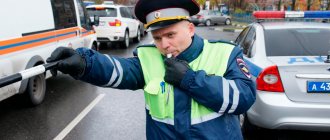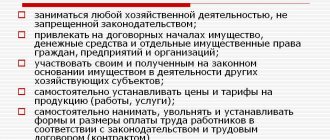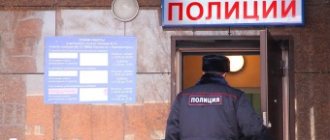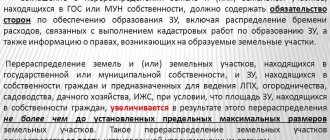General characteristics of the position
District commissioners are considered a key link between law enforcement agencies and the population. They carry out operational and official activities in the position of senior or middle management. Each employee is assigned a part of the municipal territory served by the local unit of the Ministry of Internal Affairs. In the process of work, employees ensure the protection of the health and life of the population from criminal attacks, and the social rehabilitation of citizens in need of help. District police officers work with teenagers and young people, those on probation, who are under the supervision of medical institutions. In general, employees carry out diverse activities aimed at creating favorable conditions for the realization of the interests and freedoms of the population.
District police commissioner - duties in 2019-2020
Order of the Ministry of Internal Affairs of the Russian Federation 2015 dated March 29, 2019 (download the text here for free) contains requirements for the main functions of a district police officer. Among them:
- prevention of illegal actions, including among adolescents under 18 years of age;
- suppression of offenses within the boundaries of the administrative district;
- measures to reduce the likelihood of crime among persons with a criminal record that has not yet been expunged;
- outreach work with people on preventive registration;
- monitoring citizens under administrative supervision, as well as searching for them if they have not arrived at the place of supervision;
- checking the conditions for storing weapons among residents on the site;
- conducting road safety inspections;
- reception of citizens;
- consideration of residents' complaints.
Analysis of paragraph 53 of order 615 of the Ministry of Internal Affairs of the Russian Federation “On approval of instructions for office work”
Regulatory regulation
The powers of the local police commissioner are secured primarily in Order of the Ministry of Internal Affairs No. 1166 of December 31, 2012. The document contains about 90 points. The order provides for activities in almost all areas of the Department of Internal Affairs. The powers of the local police commissioner also include participation as an investigator in criminal proceedings. However, in practice, the preliminary investigation is carried out by the relevant departments. In this case, the powers of the local police inspector are exercised only at the stage of initiating criminal proceedings. Certain areas of activity of employees are recorded in the Administrative Code.
Legal basis
The main regulatory document that describes the powers and responsibilities of the district police officer is Order of the Ministry of Internal Affairs of Russia dated December 31, 2012 N 1166 (as amended on September 8, 2016) “Issues of organizing the activities of district police officers.” This order consists of more than 106 points. According to the order, the district police officer can even act as an investigator in criminal proceedings at the preliminary investigation stage. True, this point usually remains only on paper, since in reality this is dealt with by employees of the investigation authorities or operational investigative units.
According to Order No. 1166, the district police officer is obliged to:
1. Take the required measures to protect the health, life, rights and freedoms of citizens living in the territory assigned to it.
2. Provide all possible counteraction to crime, monitor the observance of public order, organize the suppression of any attempts to violate it.
3. Monitor the safety of citizens living in the territory assigned to him.
4. Ensure the identification of administrative offenses, as well as prevent and disclose them, as well as contribute to and participate in the detection of crimes.
5. Ensure order in public places.
6. To assist in every possible way and take part in the search for persons accused or suspected of committing various crimes who are hiding from court and investigation.
7. Take personal part and provide assistance to other services and units in the search for persons considered missing, minors hiding from forced hospitalization, etc.
8. Participate in the identification of corpses.
9. Monitor citizens’ compliance with legislation in the field of arms trafficking.
10. Engage in ensuring road safety in the territory entrusted to him.
The responsibilities of the district police officer within the framework of official activities, as well as other police officers, are also defined in the Federal Law “On Police” dated 02/07/2011 No. 3-FZ.
Article 27. Basic responsibilities of a police officer 1. A police officer is obliged to: 1) know and comply with the Constitution of the Russian Federation, legislative and other regulatory legal acts in the field of internal affairs, and ensure their implementation;
undergo regular checks of knowledge of the Constitution of the Russian Federation, legislative and other regulatory legal acts in this area, in the manner determined by the federal executive body in the field of internal affairs; 2) perform official duties in accordance with job regulations (job description); 3) carry out orders and instructions from managers (supervisors) given in the prescribed manner and not contrary to federal law; 4) address official matters to your immediate superior, and, if necessary, to your direct superior, notifying your immediate superior; 5) observe the rights and legitimate interests of citizens, public associations and organizations when performing official duties; 6) comply with the internal regulations of the territorial body, the regulations of the organization included in the system of the federal executive body in the field of internal affairs where he serves; 7) maintain the level of qualifications necessary for the proper performance of official duties; not to disclose information constituting state or other secrets protected by law, as well as information that has become known to him in connection with the performance of official duties, including information relating to the private life and health of citizens or affecting their honor and dignity;
9) protect state property, including those provided to him for the performance of official duties; 10) submit, in the manner established by the legislation of the Russian Federation, information about your income, property and property-related obligations, as well as information about the income, property and property-related obligations of your spouse and minor children; 11) report the renunciation of citizenship of the Russian Federation or the acquisition of citizenship (nationality) of a foreign state on the day of renunciation of citizenship of the Russian Federation or on the day of acquisition of citizenship (nationality) of a foreign state; 12) comply with the restrictions and prohibitions established by federal laws related to service in the police, as well as comply with the requirements for the official conduct of a police officer; 13) inform your immediate superior about the emergence of personal interest, which may lead to a conflict of interest in the performance of official duties, and take measures to prevent such a conflict; 14) notify in the manner established by the legislation of the Russian Federation on combating corruption of each case of any person contacting him for the purpose of inducing him to commit a corruption offense. 2. A police officer, regardless of the position he fills, location and time of day, is obliged to: 1) provide first aid to citizens who have suffered from crimes, administrative offenses and accidents, as well as citizens who are in a helpless state or in a state dangerous to their life and health; 2) if a citizen applies to him with a statement about a crime, an administrative offense, an incident, or if a crime, an administrative offense, an incident is detected, take measures to save the citizen, prevent and (or) suppress a crime, an administrative offense, detain persons suspected in their commission, to protect the scene of a crime, an administrative offense, the scene of an incident and report this to the nearest territorial authority or police unit.
The same law also describes the basic rights of a district police officer, as well as any police officer.
Article 28. Fundamental rights of a police officer 1. A police officer has the right: 1) to ensure appropriate organizational and technical conditions necessary for the performance of official duties;
2) to familiarize himself with the job regulations (job description) and other documents defining his rights and responsibilities for the position being filled, with criteria for assessing the effectiveness of performance of official duties, performance indicators of official activities and conditions for promotion in the police service; 3) for rest, ensured by the establishment of a normal length of service time, the provision of days off and non-working holidays, as well as annual paid basic and additional leaves; 4) for wages and other payments in accordance with the legislation of the Russian Federation and the contract for service in the police; 5) to receive, in the prescribed manner, information and materials necessary for the performance of official duties, as well as to make proposals for improving the activities of the police; 6) access in the prescribed manner to information constituting state and other secrets protected by law, if the performance of official duties in the position being filled involves the use of such information; 7) access in the prescribed manner to state and municipal bodies, public associations and organizations in connection with the performance of official duties; to familiarize yourself with reviews of his official activities and other documents before adding them to his personal file, with the materials of his personal file, as well as to attach his written explanations and other documents and materials to his personal file; 9) to protect your personal data; 10) for promotion in the police; 11) for training and additional professional education; 12) to consider an official dispute in accordance with the legislation of the Russian Federation; 13) to conduct an internal audit at his request; 14) to protect their rights and legitimate interests, including appealing their violation to the court; 15) for compulsory state life and health insurance in accordance with the legislation of the Russian Federation; 16) for state protection of life and health, life and health of members of his family, as well as property belonging to him and his family members; 17) for state pension provision in accordance with federal law. 2. A police officer, with the consent of the head of the federal executive body in the field of internal affairs, the head of a territorial body or the head of an organization included in the system of the specified federal body, in the manner established by the Government of the Russian Federation, has the right, along with fulfilling the duties of the position being filled, to perform duties in another police officer positions. 3. A police officer, regardless of the position he fills, location and time of day, when performing the duties specified in Part 2 of Article 27 of this Federal Law, has the right to: 1) demand that citizens and officials stop illegal actions; 2) check citizens and officials for documents proving their identity and (or) confirming their powers; 3) use, in urgent cases, vehicles belonging to state and municipal bodies, public associations and organizations (with the exception of vehicles belonging to diplomatic missions and consular offices of foreign states, representative offices of international organizations), and in exceptional cases - vehicles belonging to citizens, to suppress crimes, prosecute persons who have committed crimes or are suspected of committing them, to deliver citizens in need of emergency medical care to medical organizations, to tow damaged vehicles from the scene of a traffic accident, to travel to the scene of a crime, administrative offense, or to the scene of an incident; 4) demand from persons suspected of committing a crime, an administrative offense, to remain in place until representatives of the territorial body or police unit or representatives of other law enforcement agencies arrive, as well as deliver persons suspected of committing a crime, administrative offense, to the office premises of the territorial body or police units, in the premises of a municipal body, in other office premises; 5) use physical force, special means and firearms on the grounds and in the manner provided for by this Federal Law.
Federal Law No. 3
This Federal Law defines the responsibilities of district police officers. To successfully perform their tasks, employees must:
1. Know and comply with the regulations in force in the Russian Federation, which form the legal basis for their work.
2. Use methods and forms for the prevention of crimes and other violations, the procedure in accordance with which urgent investigative actions are carried out and formalized, and the conduct of cases of administrative violations.
3. Have information about those involved in maintaining order in the territory entrusted to them:
- means and forces of territorial divisions of the Ministry of Internal Affairs;
- representatives of public law enforcement organizations;
- employees of enterprises that carry out non-state (private) security activities.
4. Have information about the location of mobile and stationary posts of PPS, traffic police.
5. Know the entrusted territory, its features, road map, operating hours and location of enterprises, institutions, organizations, regardless of their form of ownership, places of storage of cultural and other valuables, public recreation areas, warehouses, bases, parking lots, and so on, as well as the procedure for ensuring their protection.
6. Have information about facilities that contain explosive materials, firearms, pharmacies and other premises that contain narcotic, psychotropic compounds or their analogues, other areas where there are items withdrawn from civil circulation or limited in distribution in accordance with the law .
7. Take part in briefing representatives of law enforcement organizations before their immediate participation in activities to protect public order in the assigned area.
Rights of a district police officer
These include the following rights:
- demand from individuals and legal entities who live or work in the territory under his control to stop committing illegal actions;
- require people to provide passports or other identification documents if a local police officer suspects them of criminal activity;
- request from organizations, officials and individuals documentation that grants them the right to carry out certain activities;
- invite officials and individuals to the police if a case has been initiated in which they are involved;
- prohibit people from being in the place where the illegal act occurred;
- collect evidence;
- draw up reports of misconduct;
- deliver or forcibly accompany people to the police station in order to apprehend the culprit;
- deliver people who, due to the use of alcohol or drugs, behave inappropriately while in crowded places, and go with them for a medical examination;
- when meeting citizens, inspect their belongings, cars, if there are suspicions that these people have poisonous, explosive or narcotic substances, or weapons with them;
- to forcibly seize prohibited objects if their owner does not have the legal right to have them with him;
- inspect citizens at public events if they behave suspiciously, and if there are grounds for this, force people to leave the event, prohibit them from attending such meetings;
- stop cars within the area for which the district police officer is responsible, check driver’s licenses and other documents, inspect cargo if there is reason to suspect that the facilities are being used illegally;
- stop traffic, change the direction of traffic (for example, if cultural events, meetings, rallies take place);
- attract people, if they wish, to work together, rewarding them for their help in exposing the criminal;
- forcibly break into someone else's living quarters if there are compelling reasons for doing so (for example, to save a life);
- detain persons suspected of committing illegal actions;
- use firearms and physical force if necessary.
Legal options
The above-mentioned Federal Law No. 3 also establishes the rights and powers of district police officers. By implementing them, employees solve the tasks assigned to them and ensure the achievement of the overall goal of the internal affairs department. It is necessary to note the following norms of the Federal Law that define the powers of the local police officer: Article 17 (Part 1), Article 13 (Part 1), Art. 14 (part 2), art. 18 (part 1), art. 15 (part 3). The legal capabilities of employees are also established in other regulations of regional executive bodies adopted within the framework of their competence.
Can I check documents?
And again yes. The logic of the official legislation of 2021 is the same here - since the district police officer is a full-fledged police officer in this regard, he has the right not only to stop cars, but also to check documents:
- from the driver,
- passengers,
- as well as for pedestrians as road users.
This is directly stated in paragraph 31 of the regulations of Order No. 664. At the same time, there are reasons for checking documents - as well as for traffic police officers:
- if the local police officer reveals a traffic violation,
- special measures to prevent violations and/or accidents,
- information about the involvement of your car in a previous accident,
- search directions.
Performance indicators
The powers of the local police officer are very diverse. The key indicator of an employee’s performance are specific numbers that express the number of protocols drawn up, violations identified and other results of the employee’s activities recorded in documents. This system of implementing plans in combination with constant reporting to the Department of Internal Affairs has been criticized. The main indicator of an employee’s work is the ratio of its results to the results of the previous period. This means that if the report provides a figure lower than last year's, the performance will be rated as unsatisfactory. Accordingly, performance higher than previous ones will be encouraged.
As a result, the powers of the district police officer are exercised solely to achieve specific numbers. This, in turn, negatively affects the quality and efficiency of activities in carrying out the tasks assigned to employees. At the same time, employees are often afraid of exceeding the set plan. This is due to the fact that, in addition to the bonus, they will receive new tasks that involve achieving higher performance. In this regard, employees prefer to get the planned result and stop there. The problem is most acute in areas where relatively few residents live. Often the powers of a rural district police officer extend to several villages. This makes it much more difficult for them to carry out their activities and achieve their goals.
When can residents contact their local police officer?
The UP knows who has been convicted, is registered with the PND, has a personal weapon, has previously been convicted of domestic violence, etc. Conversations and preventive measures are being conducted with them.
Residents, in turn, can:
- ask the employee questions regarding violations by neighbors, utilities and others;
- assist and assist the district police officer in his activities;
- complain about violators.
Read also: Children's rights at school
You can contact the local police if a citizen has become an eyewitness:
- domestic conflicts;
- cruelty to animals and children;
- long absence of residents;
- illegal activities (deforestation, sale of excise goods, apartment rental, etc.);
- violations of public order (for example, fights, hooliganism, vandalism, etc.);
- drinking alcohol in the entrance, area near the house, children's playground.
Residents have the right to know in advance who the employee in charge of their home is. You can find out about this on the official portal of the Ministry of Internal Affairs, or call 102 or 112.
What powers does the district police officer have?
The work of employees involves:
- Proceedings of cases on administrative violations.
- Protection of the individual, state, society from illegal actions.
- Prevention and suppression of administrative violations and criminal offenses.
- Ensuring road safety.
The powers of the district police officer also include the identification and disclosure of criminal attacks, the search for persons in cases provided for by law. In particular, we are talking about citizens who left their families without permission, minors who committed a criminal offense, as well as those suspected/accused of crimes. The powers of the district police officer include documenting every death on the territory entrusted to him outside of a medical institution. If a person dies at home, relatives must call a clerk to view the body.
Algorithm of actions when identifying a crime
If the district police officer is notified that a crime has occurred on his territory, then he must take the following actions.
- Establish the date, address of the crime, and the identity of the alleged perpetrators.
- Find out what condition the victim is in and get information from him.
- Find witnesses to the crime.
- Tell the operational duty officer about the incident.
- If the local police officer arrived at the address before the investigators, take measures to prevent criminal acts, detain the culprit or suspect if possible, help as much as possible to those who suffered damage, ensure the safety of evidence, and tell the operational duty officer about what happened.
- Tell the investigative team about what happened.
- Follow the instructions of the team leader (find witnesses, interrogate them, call them to the investigator).
Difficulties at work
Currently, there is a not very positive practice of entrusting district police officers with tasks not directly related to their duties. However, this allows you to relieve other ATS units. District police officers are often assigned cases that do not relate to the subject of their activities. Often employees are sent to sports and other events that are held outside the territory entrusted to them. Another problem in the work of employees is the large number of messages and applications, the consideration of which does not allow them to carry out preventive work with the population in a timely manner. As a result, this leads to a significant increase in crime.
What are the responsibilities for identifying and solving crimes?
If the unitary enterprise has received information about crimes committed within the area it serves, it must:
- determine the circumstances of the incident - time, place, signs of suspects, cause, etc.;
- stop the violation being committed, try to detain the suspect, keep traces of the crime intact, and also help the victim (if the employee appeared on the scene before the investigators);
- find out the current condition of the victim, obtain information about the victim;
- notify the duty officer about the crime (if the employee arrived first at the scene of the event);
- find eyewitnesses of the event;
- transfer all received information to the arriving task force;
- carry out the instructions of the employees conducting the investigation - interview eyewitnesses, call them for questioning, etc.
Meaning of work
The district police service, in terms of the scope and importance of the tasks assigned to the police department and the role they play in the law enforcement system, is in one of the leading positions in the structure. Employees act as key representatives of internal affairs bodies in a particular territory. They are in close proximity to citizens and carry out functions and tasks that fall within the competence of almost all services, departments, apparatuses, and departments of the police department. Their official status largely determines the versatility of their activities. Fulfilling the assigned tasks requires high professionalism, the ability to use various methods and means, and psychological and pedagogical skills in one’s activities.
At the same time, it is unacceptable for the district police officer to exceed his powers. For using methods prohibited or not provided for by law, the employee faces liability. Precinct officers today are at the forefront of maintaining order in society and fighting crime. They form one of the most numerous ATS services. In this regard, they play a vital role in the process of solving problems assigned to the police. This, in turn, presupposes a special procedure for staffing the service. The district police officers should be the best police officers with the necessary work experience. However, this task is currently being solved poorly due to the lack of appropriate personnel.
Preventative rounds of the residential sector
One of the main methods of preventing and detecting offenses is a preventive patrol of the territory entrusted to him by the district police officer. In this case, the district police officer must comply with the requirements of current legislation. So, if he wants to visit an apartment for the purpose of conducting any official activities (conversation, identifying illegal residents, etc.), then he must wear a uniform. He is obliged to ring the doorbell, and in the absence of one, knock, clearly and legibly state his position, surname, rank; at the request of the citizen - present his official identification and explain the purpose of his visit.
Also, as part of an administrative investigation, the district police officer has the right to summon a citizen for a conversation or to testify by subpoena. However, it is necessary to understand that in case of failure to appear in an administrative case, the law does not provide for any sanctions. Sanctions are provided only in case of failure to appear in response to a summons in criminal proceedings.
At the same time, a citizen should know that Art. 25 of the Constitution of the Russian Federation proclaims the inviolability of the home. No one has the right to enter a home against the will of the resident, except in cases stipulated by current legislation.
Such cases are:
Code of Criminal Procedure of the Russian Federation Article 12. Inviolability of the home 1. Inspection of the home is carried out only with the consent of the persons living in it or on the basis of a court decision, except for the cases provided for in part five of Article 165 of this Code. 2. A search and seizure of a home may be carried out on the basis of a court decision, with the exception of cases provided for in part five of Article 165 of this Code. Code of Criminal Procedure of the Russian Federation Article 165. Judicial procedure for obtaining permission to carry out an investigative action ... 5. In exceptional cases, when an inspection of a home, a search and seizure of a home, a personal search, as well as the seizure of an item pledged or deposited in a pawnshop, seizure of property , specified in part one of Article 104.1 of the Criminal Code of the Russian Federation, cannot be delayed; these investigative actions can be carried out on the basis of a decision of the investigator or inquiry officer without obtaining a court decision. In this case, the investigator or inquiry officer, no later than 3 days from the start of the investigative action, notifies the judge and the prosecutor about the investigative action. Attached to the notification are copies of the resolution to carry out the investigative action and the protocol of the investigative action to verify the legality of the decision to carry out the investigative action. Having received the specified notification, the judge, within the period provided for in part two of this article, verifies the legality of the investigative action taken and makes a decision on its legality or illegality. If the judge recognizes the investigative action taken as illegal, all evidence obtained during such investigative action is declared inadmissible in accordance with Article 75 of this Code.
Federal Law “On Police” dated 02/07/2011 No. 3-FZ:
Article 15. Entry (penetration) into residential and other premises, land plots and territories... 3. Penetration of police officers into residential premises, other premises and land plots belonging to citizens, into premises, land plots and territories occupied by organizations (except for premises, land plots and territories of diplomatic missions and consular offices of foreign states, representative offices of international organizations), is allowed in cases provided for by the legislation of the Russian Federation, as well as: 1) to save the lives of citizens and (or) their property, ensure the safety of citizens or public safety during riots and emergencies; 2) to detain persons suspected of committing a crime; 3) to suppress a crime; 4) to establish the circumstances of the accident. 4. When entering residential premises, other premises and land plots belonging to citizens, premises, land plots and territories occupied by organizations, in the cases provided for in Part 3 of this article, a police officer has the right, if necessary, to break into (destruction) locking devices, elements and structures that prevent entry into the specified premises and onto the specified land plots and territories, and inspection of objects and vehicles located there. 5. A police officer entering (penetrating) a residential premises is obliged to: 1) before entering the residential premises, notify the citizens there about the reasons for entry, except in cases where delay creates an immediate threat to the life and health of citizens and police officers or may lead to other serious consequences; 2) when entering a residential premises, against the will of the citizens there, use safe methods and means, respect the honor, dignity, life and health of citizens, and prevent unnecessary damage to their property; 3) not to disclose facts of the private life of citizens living there that became known to him in connection with entry (penetration) into a residential premises; 4) inform your immediate superior and submit a report within 24 hours about the fact of entry (penetration) into the residential premises.
In all other cases, entering a police officer’s apartment without the consent of the residents is illegal.
According to paragraph 42 of Order No. 1166 of the Ministry of Internal Affairs of the Russian Federation, the district police officer must carry out preventive rounds daily.
Preventive activities
The powers of the district police officer include individual work with certain categories of persons. These include, in particular:
- Released from places of detention and having an unexpunged/unexpunged conviction for a serious/especially serious act, recidivism, intentional assault on minors, in respect of whom the court has established a temporary restriction of freedoms and a number of obligations defined in the Federal Law.
- Patients with drug addiction or alcoholism who are registered in a medical institution and pose a threat to society.
- Those who have committed domestic offenses.
- Members of informal youth organizations of an illegal nature that violate public order and security.
- Those who have committed administrative offenses during mass socio-political, sports, cultural, religious and other events.
- Subjects who have administrative sanctions for the illegal trafficking of psychotropic, narcotic compounds or their analogues and their use without a doctor’s prescription.
The district police officer monitors behavior:
- Minors registered with the PND.
- Convicted of crimes to which a non-custodial sentence or suspended imprisonment was applied.
Algorithm of actions in case of an offense
If a district police officer has discovered an administrative offense at the site for which he is responsible, the procedure will be as follows:
- determine who committed the offense;
- draw up a protocol on the offense;
- detain the culprit, issue a ruling to initiate a case, issue a resolution on the imposed punishment (penalties, oral reprimand);
- bring the culprit to the regional department of the Ministry of Internal Affairs if the person uses psychotropic substances or drugs.
Areas of preventive work
Employees keep records of citizens who live in the entrusted territory. The tasks of the employees include conducting preventive work upon admission:
- Relevant messages from correctional institutions and court orders for persons released from prisons, colonies, etc., in respect of whom restrictions have been established, according to the Federal Law.
- Documents from medical institutions for subjects suffering from drug addiction or alcoholism, registered with a medical organization and posing a danger to society.
- A report from the district police officer addressed to the head of the territorial unit of the Ministry of Internal Affairs, agreed upon with the administration of the OUUP. This document must contain justification for the need to register a citizen who falls under one of the characteristics indicated above.
- Messages from the correctional institution or the territorial body of the Federal Penitentiary Service, copies of the verdict for persons to whom a non-custodial sentence or suspended sentence was applied.
- Information from the PND on the need to carry out preventive work with registered minors.
Where to complain about a local police officer
If a local police officer fails to fulfill his duties, you should first file a complaint with the territorial police department. Often, in order to resolve the issue, it is enough to file a corresponding complaint addressed to the head of the Department of Internal Affairs. In order not to wash dirty linen in public and not to be punished yourself (in case of appeal to higher authorities), the boss will quickly explain to the district police officer the need to properly perform his duties. At least only in this case.
If a complaint to the head of the territorial department of the Ministry of Internal Affairs does not bring results, then it is necessary to file a complaint with the prosecutor's office. At the same time, it is important to have confirmation that you have previously applied to the Department of Internal Affairs - a coupon for accepting the application, a copy of the application with a visa and the details of the employee who accepted the application.
If, as a result of the actions or inaction of a local police officer, a citizen has suffered material harm, the issue is resolved in court. At the same time, when filing a claim, it is necessary to have evidence that material damage was actually caused.
Another way to appeal the actions or inactions of a local police officer is to call the hotline of the Ministry of Internal Affairs of the Russian Federation - 8-800-222-74-47
Deadlines
Preventive accounting lasts:
- For released citizens for whom restrictions have been established - before the expiration of their period.
- For patients with drug addiction/alcoholism - before the end of the period for deregistration at the medical institution.
- For those committing violations in the field of domestic relations, administrative offenses that impinge on order and safety in society - within a year from the start of control.
- For those sentenced to probation - until the end of their sentence.
- For minors - until deregistration.
Procedure for studying requests from individuals
District police officers hold meetings with individuals and study requests from them. Each district police officer has a separate work schedule established by the authorities of the regional Ministry of Internal Affairs of the Russian Federation.
Any schedule must meet the following requirements:
- meeting of applicants – from 3 times a week and more often;
- meeting of citizens on Saturday or Sunday;
- meeting during the day and evening hours.
The official meets citizens and examines their appeals at the appropriate police station, after which he takes the necessary measures.









